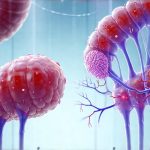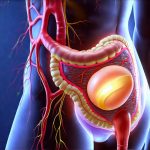The human body is an incredibly interconnected system, where seemingly disparate parts constantly communicate and influence one another. For years, research focused primarily on individual organs and systems. However, we are now beginning to fully appreciate the profound interplay between different areas, particularly the surprising connection between our digestive system – specifically the gut – and our brain. This bidirectional communication pathway is known as the gut-brain axis, and understanding it is revolutionizing how we approach health and wellbeing.
This complex network involves neural, hormonal, immune, and metabolic pathways. It’s not simply a one-way street; signals travel from the gut to the brain and vice versa, impacting everything from mood and cognition to digestive function and immune response. Recognizing this intricate relationship is critical for comprehending overall health and exploring potential strategies for improved wellness.
What is the Gut-Brain Axis?
The gut-brain axis (GBA) isn’t a newly discovered concept but rather a growing field of scientific investigation that formalizes what holistic practitioners have long suspected: our mental and physical wellbeing are intimately linked to the health of our digestive system. It encompasses the multifaceted communication network between the gastrointestinal tract and the brain.
This connection isn’t merely philosophical; it’s demonstrably physiological, involving multiple pathways working simultaneously. These include the vagus nerve – a direct neural link – as well as the production of neurotransmitters, short-chain fatty acids (SCFAs), and immune molecules within the gut that can influence brain function, and conversely, signals from the brain influencing gut motility and permeability.
The Role of Gut Microbiota
The trillions of microorganisms residing in our digestive tract, collectively known as the gut microbiota, play a central role in shaping the GBA. These bacteria, fungi, viruses, and other microbes aren’t simply passive inhabitants; they actively participate in numerous physiological processes vital for health.
Microbial Influence on Neurotransmitters
Many neurotransmitters, chemical messengers crucial for brain function, are significantly influenced by gut microbiota. For example, approximately 90% of serotonin – often called the “happiness hormone” – is produced in the gut, with microbial activity impacting its synthesis and regulation. Similarly, dopamine, GABA (gamma-aminobutyric acid), and norepinephrine production can all be modulated by the composition and function of the gut microbiome. This means a healthy and diverse microbiota can contribute to balanced neurotransmitter levels which are essential for mood, motivation and cognitive function.
Impact on Immune Function
A substantial portion of our immune system resides in the gut. The gut microbiota interacts directly with immune cells, helping to “train” them to differentiate between harmless and harmful substances. Dysbiosis – an imbalance in the gut microbiome – can disrupt this process, leading to chronic inflammation and potentially impacting brain health through inflammatory pathways. This relationship highlights how a compromised gut microbiome could contribute to autoimmune conditions or neurological disorders.
Short-Chain Fatty Acid Production
When dietary fiber reaches the colon, it’s fermented by gut bacteria into short-chain fatty acids (SCFAs) like butyrate, propionate, and acetate. These SCFAs aren’t just waste products; they are powerful signaling molecules with wide-ranging effects on health. They provide energy for colon cells, strengthen the gut barrier, reduce inflammation, and even cross the blood-brain barrier to directly influence brain function and cognitive processes. A fiber-rich diet promotes SCFA production, supporting a healthy GBA.
The gut-brain axis is a fascinating area of ongoing research with implications across many aspects of health. While more investigation is needed, it’s increasingly clear that nurturing our gut microbiome through dietary choices, lifestyle adjustments, and potentially targeted interventions may play a significant role in promoting both physical and mental wellbeing. Recognizing the interconnectedness between our gut and brain offers a holistic approach to understanding and supporting overall health – one that acknowledges the profound impact of this vital communication network. Future studies will undoubtedly reveal even more about the intricacies of the GBA and how we can harness its power for improved health outcomes.


















